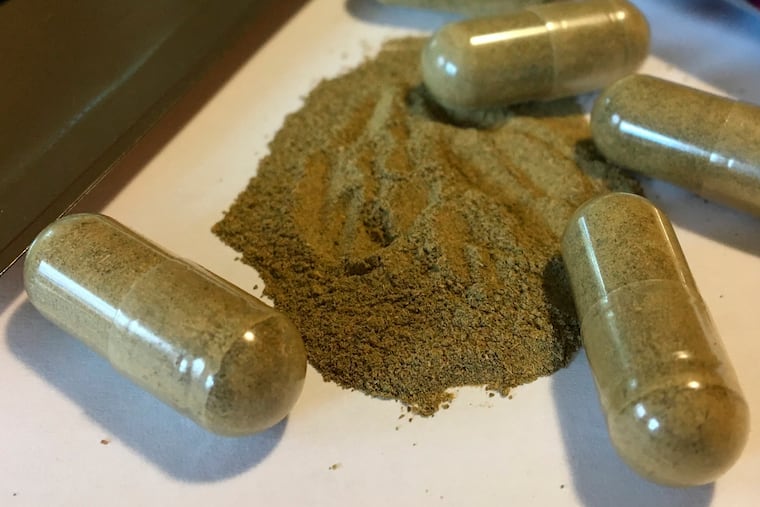Kratom linked to nearly 100 U.S. overdose deaths, CDC finds
There were more than 1800 calls to the national poison center concerning exposure to kratom from 2011 to 2017.

Kratom, the popular but unregulated herbal supplement derived from a Southeast Asian tree, has been linked to 91 overdose deaths in the United States, the Centers for Disease Control and Prevention reported Thursday.
In the study, the CDC looked at data on 27,338 overdose deaths reported from 11 states from July 2016 to June 2017 and in 27 states from July to December 2017.
Kratom was detected in postmortem toxicology testing for 152 deaths. In 91 of those cases, medical examiners or coroners concluded that kratom was the cause of death, including seven where the herbal product was the only substance found in postmortem testing. Of those cases, 69 were men and 22 were women.
In about 80 percent of the deaths where kratom was found, the subject had a history of substance misuse, and approximately 90 percent had no evidence they were being medically treated for pain. Advocates say kratom can relieve pain and help with opioid withdrawal and promote a sense of well-being.
The report also stated that the number of kratom-positive deaths may be an underestimate.
The data were pulled from the State Unintentional Drug Overdose Reporting System. Pennsylvania, New Jersey and Delaware are among the states that reported their findings between July and December 2017.
Other drugs found in the postmortem testing included fentanyl, heroin, prescription opioids and alcohol, according to the report. The report also stated there were 1,807 calls to the national poison center concerning reported exposure to kratom from 2011 to 2017.
There have been at least four deaths in the Philadelphia region in which kratom was the only substance found in postmortem toxicology testing.
On Friday, State Rep. Scott Conklin (D. ,Centre) said he will introduce a bill that would add kratom to the list of Pennsylvania’s controlled substances.
Conklin said the increase in deaths is from those addicted to opioids who use the herbal product as a treatment for withdrawal.
“There is no reliable evidence to support kratom’s use to treat opioid addiction or for any other health conditions, including depression, diabetes, obesity, and high blood pressure," Conklin said.
Kratom is sold online and in gas stations and smoke shops, and is typically brewed as a tea, chewed, smoked, or ingested in capsules. It is banned in several countries, including Australia, Denmark, Germany, Malaysia, and Thailand, as well as several states and municipalities.
In November, the Food and Drug Administration found that samples of the unregulated product are contaminated with heavy metals including lead and nickel.
The agency has sought to regulate the product and issued a public health advisory in November 2017. The U.S. Drug Enforcement Administration has identified kratom as a drug of concern, the CDC reported.